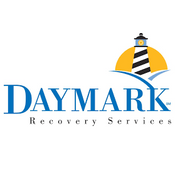
Alcohol withdrawal syndrome (AWS) occurs when someone stops using alcohol after a prolonged period of heavy drinking. As alcohol levels lower, the person can experience a combination of symptoms that are both physical and emotional. Severe cases of AWS can be dangerous or even life-threatening, so if you’re concerned, seek medical counseling right away. Depending on their situation, the affected individual may be able to recover at home with supervision from a trusted friend or family. Otherwise, a doctor could admit them into the hospital to monitor their heart and manage complications safely. Below, learn about this process and how to aid in recovery.
What Symptoms Can Occur During Alcohol Withdrawal?
Alcohol substance use disorder has a profound effect on the central nervous system. Alcohol has a sedating effect, and, with repeat exposure, your body adapts its neurochemistry to compensate. Natural stimulants, like serotonin and norepinephrine, can flood your system. If a person suddenly stops drinking, their body will struggle to readjust, causing withdrawal. AWS usually occurs within the first 24 to 72 hours.
Symptoms of AWS can include:
-
Tremors, especially in the hands
-
Nausea and vomiting
-
Disorientation
-
Elevated heart rate
-
Sweating
-
Headache
-
High blood pressure
In serious but rare cases, a person with AWS can also develop delirium tremens (DT), which can cause seizures, hallucinations, a fever, and extreme agitation. This stage is a medical emergency and requires immediate hospital care.
How Is Alcohol Withdrawal Treated?
 For the first two to three days, these symptoms can worsen. A physician can prescribe IV fluids, vitamin supplements, and medications to make you more comfortable. They might also recommend a nutritionist to help aid your recovery.
For the first two to three days, these symptoms can worsen. A physician can prescribe IV fluids, vitamin supplements, and medications to make you more comfortable. They might also recommend a nutritionist to help aid your recovery.
After the initial shock, the body will gradually start to recalibrate. However, milder symptoms can persist for weeks. People should seek counseling to help manage the emotional effects of substance use disorder, which might include anxiety, irritability, fatigue, depression, and sleep disturbances. Counseling can help with managing these symptoms and facilitate long-term recovery. A recovery support group might also be beneficial.
If you or a loved one wants to find a treatment center for alcohol substance use disorder, Daymark Recovery Services in Lexington, NC, provides a number of resources, including counseling and outpatient services. To learn more about their compassionate and welcoming approach, visit their website.
About the Business
Have a question? Ask the experts!
Send your question

